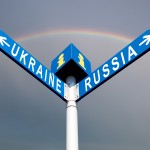At Liberty Law Blog, Don Devine takes a look at two recent books:
Room to Grow (YG Network), [described by David Brooks as “[T]he most coherent and compelling policy agenda the American right has produced this century.”], and Mickelthwaite’s and Woolridge’s The Fourth Revolution, and finds them wanting.
Don writes:
Certainly, the necessary changes are not possible today under President Obama. But neither are the Room to Grow or The Fourth Revolution proposals. What can be achieved is for reformers to create a truly radical plan if they ever get the electoral opportunity to act. Micklethwait and Wooldridge are closer to the fundamental changes required but they bury them in their penultimate chapter. As they correctly suggest, the real historical successes were cases in which decisions were sent to the market or to local government and people were allowed to figure things out for themselves. Direction is changed by the single stroke, not by bureaucratic policy nuance. Privatization and decentralization of governmental power are the only recipe for a genuine overhaul of the overly centralized welfare state.
If overload is the problem weighing down the welfare state, it follows that reducing the range of responsibilities and sending them elsewhere, not devising new policies for the existing bureaucracy to carry out, is the solution. For the wary, this is not institutional manipulation but restoration of the Constitution to its policy wisdom in Article I, Section




